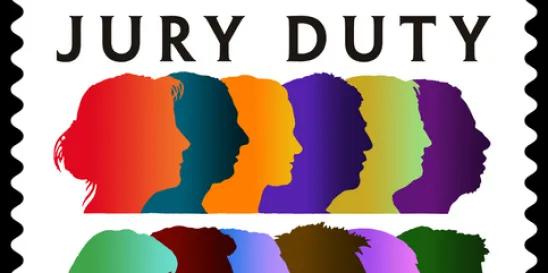In jury selection, it is not uncommon to hear an attorney or client make a comment that reflects their long-held belief that certain stereotypes will cause a person to naturally lean in one direction or another. For example, we frequently hear defense attorneys say, “Well, we certainly don’t want any teachers [or nurses, or social workers, etc.] on our panel!” Defense attorneys often believe that individuals in many of the “helping” professions will naturally lean plaintiff, as they expect such jurors to be overly sympathetic, to be less likely to be critical about claimed injuries, and to possess a strong desire to compensate plaintiffs and punish the defendant corporation for perceived wrongdoing.
While it is natural to look for easily identifiable characteristics as criteria for jury “deselection”—especially when voir dire time can be in short supply—the reality is that people are just more complicated than that. As novelist Chimamanda Ngozi Adichi, known for her themes of politics, culture, race, and gender, has said, “The problem with stereotypes is not that they are untrue, but that they are incomplete. They make one story become the only story.” Every individual has a lifetime of experiences that make them unique and shape how they perceive the world and its injustices. Our many years of jury selection and jury research experience have shown that it is very rare for demographic characteristics, including someone’s profession, to be a valid distinguisher of jurors’ ultimate decisions in a case.
Take teachers, for example. In a post-verdict interview we conducted with one juror, a high-school history teacher, he explained why he was one of the only remaining defense supporters and why he had fought for three days about the damages the jury wanted to award. He expressed his belief that the other jurors were “pull[ing] numbers out of thin air” with no legitimate basis. Further, it was clear to him that the jury was attempting to punish the defendant, despite not being asked to award punitive damages. Moreover, despite what stereotypes might suggest, he showed little sympathy for the plaintiffs and disagreed with the other jurors that this was an “opportunity to do something nice for this family,” countering, “I’m not here to do something nice for them; I don’t know them.”
Another piece of conventional wisdom is that those in professions involving money and/or accounting are “good” jurors in cases involving financial institutions because they are familiar and comfortable with complex financial matters. Imagine the attorneys’ surprise at our mock trial when one of the jurors most opposed to our case was an individual with a professional brokerage background. Not only was he vehemently hostile to our case, but he was also vocal and used enough “insider” language to be very convincing to his fellow jurors in deliberations. So, despite the stereotype of “accounting or finance types” being good for financial institutions, this individual would have been a disaster for the defense if he landed on the actual jury at trial.
The Psychology Against Stereotyping
In most cases, stereotypes of “good” or “bad” jurors (which generally involve demographic categories) are not very helpful or accurate as standalone distinguishers when identifying the jurors most dangerous to your case.
We know from psychology and the cognitive sciences that when humans are faced with conflicting, difficult, and/or ambiguous facts, their cognitive “filters”—based on sensibilities that are developed over their lifetime—determine what information is accepted; information consistent with what they already believe is true “gets in,” and information that is inconsistent tends to get ignored or partially ignored. While some people are open to hearing and assimilating your “side of the story,” other jurors’ filters are so powerful that they cannot set them aside enough to hear your case.
Jury selection would certainly be simpler if demographics told the entire story about an individual, but, over and over, research and experience have proven that what really counts are the attitudes and experiences that make it difficult, if not impossible, for individual jurors to listen to your case with an open mind.
ATTITUDES AND EXPERIENCES MATTER MOST IN JURY SELECTION
Looking again at professions as an example, not all teachers or nurses will react the same to each case simply because they share a profession. In fact, merely taking a deeper dive into the subtype of professional is one way to begin to reveal individual experiences that may or may not be relevant to your case:
A high-school teacher, like the juror discussed above, and a kindergarten teacher are exposed to very different experiences in their daily work lives based on the roles they take with their students. The high-school teacher tends to deal with obstinate teenagers, such that these teachers may adopt an authoritative role, whereas kindergarten teachers whose young students have different needs may take on a nurturing role. There are also differences in teachers’ educational backgrounds and teaching subjects—a teacher in the “hard” sciences (e.g., mathematics, biology, chemistry) versus fields like psychology or sociology may perceive cases differently because of their background, experiences, and preferences, not necessarily because of their profession.
Similarly, all nurses are not created equal in their perceptions and beliefs. There are many variables in the nursing profession that should be considered before blindly pursuing or rejecting them as a group. For instance, nurses that work in high-pressure environments (e.g., emergency rooms or intensive care units) must exercise critical thinking throughout each day because people’s lives depend on it, so they may be more likely to examine and weigh the evidence differently (perhaps more carefully) than those who work in a slower-paced, non-emergent patient care environment.
Not only are professionals likely to have had very different work experiences based on their subtypes, but the decisionto take up various subjects or specialties in the first place can also reflect differing personalities and attitudes. And yet, even these many informative factors still do not account for the plethora of additional experiences any given person has that offer a more complete picture of them as a juror.
How Are Demographics Best Used in Jury Selection?
Sometimes demographic categories are part of an overall profile of your riskiest jurors. However, with few exceptions, they are useful only in combination with attitudes and experiences relevant to the case at hand. Indeed, demographics may play a role in a jury profile because information like age, race, gender, or socioeconomic status can be a proxy for other attitudes and experiences; oftentimes, jurors of the same demographic grouping have certain shared experiences that give rise to shared attitudes. Their shared demographics are not what connects them; they are just the tip of the iceberg.
For instance, “people under 30 years old” may be part of your plaintiff-juror profile, but it is not all younger people who are problematic—it is, perhaps, specifically those who harbor anti-corporate bias due to increased exposure to coverage of corporate misconduct and those who believe that punishing a corporation is an avenue for positive societal change. That is, it is those younger people’s attitudes and experiences, not simply their age, that determine whether they are predisposed against your case. As a result, we caution against heavy reliance on demographics, even if they appear in your jury profile. While demographics are often the easiest information to gather about a prospective juror, they can be the least useful and sometimes lead you in the wrong direction.
One common example is relying too heavily on education level. Despite the common perception that more educated jurors are good defense jurors, we are increasingly seeing that many defense jurors are not those with the highest educational attainment, but rather those with strong “street smarts” or common sense. These individuals may run their own businesses or households and regularly use logic and common sense to solve problems. In a recent mock trial for a slip and fall case, the strongest defense supporters were not necessarily the most educated, but they shared experiences with other, more highly educated defense jurors in that they were managers or heads of households who regularly relied on facts to make executive decisions. In fact, some of the most educated individuals were vocal plaintiff jurors who held postgraduate degrees, but digging into their experiences revealed that both jurors had experienced unstable careers as overqualified substitute teachers and as a result were sympathetic to a plaintiff who had fallen on hard times.
So, while demographic information may serve in a pinch as a supplement or tiebreaker if counsel is weighing jurors with similar identified risk levels (based on more reliable factors), it will nearly always be the experiences and attitudes of the individual that tell the whole story.
THE EXCEPTION TO THE DEMOGRAPHIC RULE
The one minor exception to the overall “rule” that demographic categories are generally not useful distinguishers of dangerous jurors is when the issue at the heart of the case is a demographic category. For example, if your case is an age or gender discrimination case, it will be important to determine how much weight the demographic component of older people or women will carry when looking for those jurors who might identify with the plaintiff.
Of course, even that is no guarantee, by any stretch. While age and gender are key issues in such cases, exploring the attitudes and experiences of jurors to identify who will likely sympathize with the plaintiff remains critical to determining which of the older individuals and/or women are predisposed to support the plaintiff’s case.
Conclusion
In the end, it is potential jurors’ attitudes and experiences that should guide your jury deselection decisions. Demographic stereotypes provide an incomplete—if not actively misleading—profile and always should be viewed in combination with other distinguishers and verbal responses to voir dire questions.





 />i
/>i

